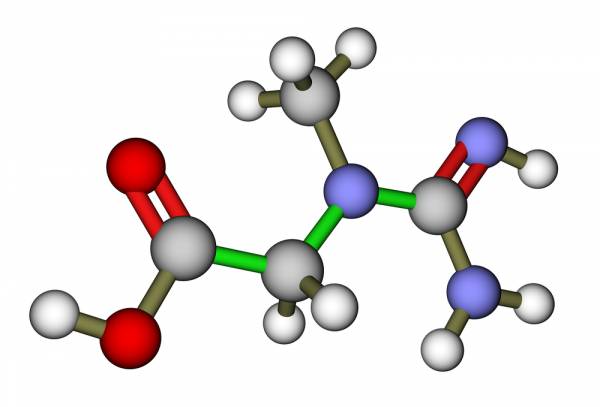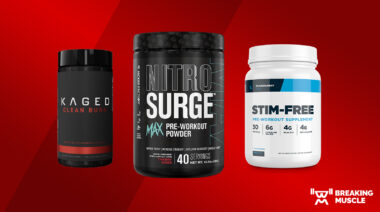The supplement industry is an amazing beast – stores filled with thousands of products all brightly coloured, vying for your attention, and touting the results you are after. With the price tag some of these supplements carry you can only hope they do indeed deliver on their promises. So, the question is, what is worth your time, consideration, and hard-earned money?
For too long I have watched people shell out their money on products that probably don’t initiate the same effect as a simple cup of coffee. Now, everyone is different, and everyone has their go-to products they believe are the best. This week I’m going to share my personal top five supplements. These are the supplements I believe give you the best bang for your buck and also have been proven time and again to be effective.
1. Whey Protein
Whey protein is generally the cornerstone supplement in most athletes’ arsenals. Whey is the watery portion of milk that separates from the curd and is a by-product in cheese making. Generally whey protein is taken before or after a workout to help improve muscle recovery and promote protein synthesis. Whey protein is an abundant source of branched chain amino acids (BCAAs). BCAAs consist of leucine, iso-luecine and valine and are used to stimulate protein, and leucine plays an important role in this process as well.
There are three forms that whey protein generally comes in – whey concentrate (WPC), whey isolate (WPI), and whey hydrolysate (WPH):
- Whey concentrates have a lower level of fat but in general have a higher amount of bioactive compounds and lactose giving it a higher carbohydrate concentration. Generally they are between 30%-89% protein by weight.
- Whey isolates are processed to have the fat and lactose removed from them and are usually lower in bioactive compounds because of this. Generally they are around 90% + protein by weight.
- Whey hydrolysates are pre-digested whey proteins that are partially hydrolyzed to aid in an easier metabolised whey protein. The problem is that this also comes with a higher cost. Hydrolysates can also be less allergenic.
Supplementing with whey can help whether you are trying to lose fat or gain muscle. But, it should only be used as an addition in your diet to other whole food protein sources to get an overall balanced diet.
2. Fish Oil
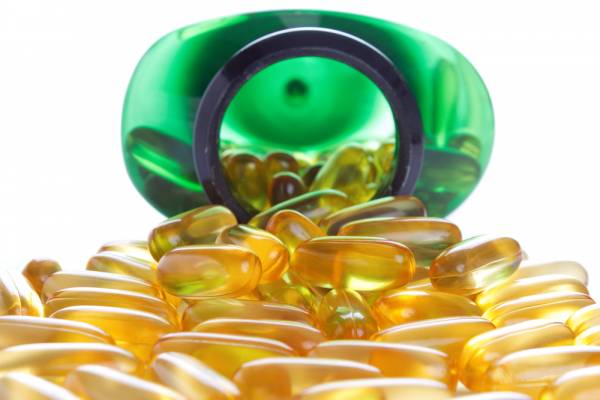 In a perfect world we would all be getting enough omega-3 fatty acids in our diet, but the reality is most people are not and require supplementation in either liquid or capsule form to help up their intake. Derived from the fatty layers of cold-water fish, fish oil is rich in the long chain omega 3 fatty acids eicosapentanoic acid (EPA) and docosahexaenoic acid (DHA). These are necessary fats in our diet as the human body is incapable of synthesizing them, so they must be obtained through food. Some of the health benefits include reduced cholesterol, blood pressure, and inflammation, as well as improved cognitive state and mood. For these benefits alone, unless you are eating the required fish intake in your diet supplementing just makes sense.
In a perfect world we would all be getting enough omega-3 fatty acids in our diet, but the reality is most people are not and require supplementation in either liquid or capsule form to help up their intake. Derived from the fatty layers of cold-water fish, fish oil is rich in the long chain omega 3 fatty acids eicosapentanoic acid (EPA) and docosahexaenoic acid (DHA). These are necessary fats in our diet as the human body is incapable of synthesizing them, so they must be obtained through food. Some of the health benefits include reduced cholesterol, blood pressure, and inflammation, as well as improved cognitive state and mood. For these benefits alone, unless you are eating the required fish intake in your diet supplementing just makes sense.
Creatine is one of the most widely researched sports supplements. It has been proven that it is safe and that it works. Creatine is found in our muscles cells and is most abundant in skeletal muscle, where 95% of our body’s creatine is stored. Creatine is generally supplemented in the form of creatine monohydrate.
The benefits of supplementing with creatine include:
- Increased lean muscle growth and increased muscle cell volume
- Increased post workout recovery
- Increased muscle performance
Research has shown that supplementing with 5 to 20 grams per day is safe and virtually devoid of any adverse side effects, while in the short term increasing maximum power and performance during high intensity repetitive anaerobic training by 5 to 15%.
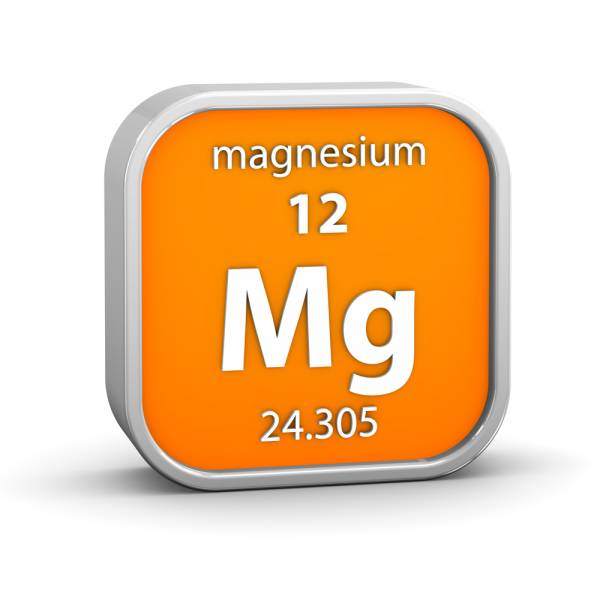 4. Magnesium
4. Magnesium
Magnesium is essential to maintaining optimal health, as it is the fourth most abundant mineral in the body. Around 50% of the body’s magnesium is contained in our bones. The reason magnesium is so important is because it is involved in over 300 reactions in the body.
Magnesium is involved in the following:
- Maintaining nerve and muscle function
- Maintaining steady heart rhythm
- Helping support the immune system
- Supporting bone strength
- Supporting energy metabolism and protein synthesis.
Research has also shown supplementing with magnesium of 390mg a day can result in an increased peak oxygen uptake and an increased work output.
5. Glutamine
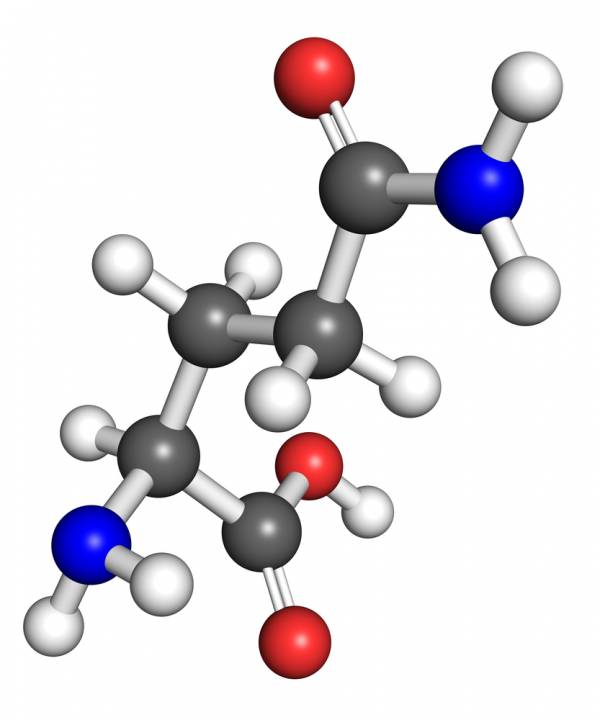 The most abundant non-essential amino acid in the body, glutamine is one of the few amino acids that can directly cross the blood-brain barrier. In the body, it can be found stored in the skeletal muscles and circulating in the bloodstream. Glutamine-enriched diets can help maintain proper gut barrier function and support the immune system, especially in times of stress. Weight trainers may find they can lift heavier for prolonged periods of time and possibly train more frequently when supplementing, as glutamine can slow down the breakdown of muscle tissue during intensive exercise and aid in recovery.
The most abundant non-essential amino acid in the body, glutamine is one of the few amino acids that can directly cross the blood-brain barrier. In the body, it can be found stored in the skeletal muscles and circulating in the bloodstream. Glutamine-enriched diets can help maintain proper gut barrier function and support the immune system, especially in times of stress. Weight trainers may find they can lift heavier for prolonged periods of time and possibly train more frequently when supplementing, as glutamine can slow down the breakdown of muscle tissue during intensive exercise and aid in recovery.
Now you can see the five supplements that I take on a regular basis to maintain optimal health and support my training goals. Granted, I take other supplements from time to time, but the above five provide me with my base. Give them a try and you might improve your training and performance. It should be noted, though, that no amount of supplementation can make up for a poorly designed diet. Make sure you eat a healthy, unprocessed, and colorful diet to obtain all the benefits of vitamins, minerals, and antioxidants.
References:
1. Yang, Y; Breen, L; Burd, NA; Hector, AJ; Churchward-Venne, TA; Josse, AR; Tarnopolsky, MA; Phillips, SM (2012 Feb 7). “Resistance exercise enhances myofibrillar protein synthesis with graded intakes of whey protein in older men.” The British journal of nutrition: 1–9.
2. Fujita, Dreyer, Drummon, Glynn, cadenas, Et Al. (2007). “Nutrient signalling in the regulation of human muscle protein synthesis.” The Journal of physiology 582 (Pt 2): 813–23.
3. Lee YH (November 1992). “Food-processing approaches to altering allergenic potential of milk-based formula.” J. Pediatr. 121 (5 Pt 2): S47–50.
4. Bizzarini E, De Angelis L (December 2004). “Is the use of oral creatine supplementation safe?” The Journal of Sports Medicine and Physical Fitness 44 (4): 411–6.
5. Bird, Stephen. “creatine supplementation and exercise performance: a brief review” Journal of Sports Science and Medicine (2003) 2, 123-132.
6. Wester PO. Magnesium. Am J Clin Nutr 1987;45:1305-12.
7. Saris NE, Mervaala E, Karppanen H, Khawaja JA, Lewenstam A. Magnesium: an update on physiological, clinical, and analytical aspects. Clinica Chimica Acta 2000;294:1-26.
8. Lee, W. J.; Hawkins, R. A.; Viña, J. R.; Peterson, D. R. (1998). “Glutamine transport by the blood-brain barrier: A possible mechanism for nitrogen removal.” The American journal of physiology 274 (4 Pt 1): C1101–C1107.
9. Zhu Ming Jiang, Z. M.; Cao, J. D.; Zhu, X. G.; Zhao, W. X.; Yu, J. C.; Ma, E. L.; Wang, X. R.; Zhu, M. W. et al. (1999). “The Impact of Alanyl-Glutamine on Clinical Safety, Nitrogen Balance, Intestinal Permeability, and Clinical Outcome in Postoperative Patients: A Randomized, Double-Blind, Controlled Study of 120 Patients“. Journal of Parenteral and Enteral Nutrition 23 (5 Suppl): S62–S66.
Photos courtesy of Shutterstock.

